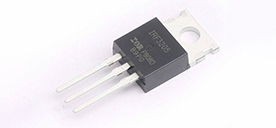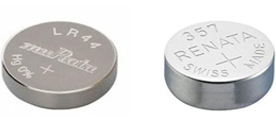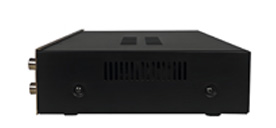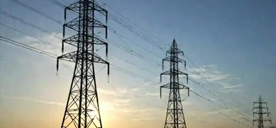UV Photoresistors: Exploring Breakthroughs in UV Detection Technology
2023/12/2 9:48:17
Views:
A UV photoresistor is an electronic component that produces a change in resistance based on the sensitivity of a semiconductor material to ultraviolet light. The sensitive layer, electrode and packaging structure of the resistor constitute a device for converting optical signals into electrical signals. The principles and characteristics of UV photoresistors are an area worthy of in-depth study.
The working principle of UV photoresistors relies on the photosensitivity effect. When ultraviolet light strikes the sensitive layer of the resistor, the energy of the photons is absorbed by the semiconductor material, which excites electrons, resulting in a change in the concentration of carriers. This process causes the resistance value of the resistor to change, producing what is known as the photoresistive effect.
The band structure of the semiconductor material used in the sensitive layer plays an important role in the operation of UV photoresistors. In some materials, after ultraviolet light irradiation, electronic transitions between energy bands can lead to the excitation or dissociation of electrons, thereby changing the conductive properties of the material. This photoelectric conversion process enables UV photoresistors to effectively detect and measure UV light signals.
UV photoresistors have many properties, including high sensitivity and fast response. It can detect lower intensity ultraviolet light signals and quickly respond to changes in light signals, converting them into electrical signals. These properties make UV photoresistors excellent in light control and sensing applications.
In addition, UV photoresistors are usually able to cover a wide range of UV bands and have a high degree of stability, maintaining stable operating performance even under different environmental conditions. These characteristics make UV photoresistors suitable for various application scenarios, including indoor lighting control, UV radiation detection, and security monitoring.
Finally, UV photoresistors offer adjustability and low power consumption. It can adjust its sensitivity and response characteristics by changing the operating voltage or external circuit to adapt to different application needs. In addition, UV photoresistors often enable efficient photoelectric conversion with lower energy consumption, which helps save energy and reduce electricity costs.
All in all, UV photoresistors are an important technology that play a key role in various UV applications. With the continuous development of science and technology, the application fields of UV photoresistors will continue to expand, bringing more convenience and innovation to our life and work.
The working principle of UV photoresistors relies on the photosensitivity effect. When ultraviolet light strikes the sensitive layer of the resistor, the energy of the photons is absorbed by the semiconductor material, which excites electrons, resulting in a change in the concentration of carriers. This process causes the resistance value of the resistor to change, producing what is known as the photoresistive effect.
The band structure of the semiconductor material used in the sensitive layer plays an important role in the operation of UV photoresistors. In some materials, after ultraviolet light irradiation, electronic transitions between energy bands can lead to the excitation or dissociation of electrons, thereby changing the conductive properties of the material. This photoelectric conversion process enables UV photoresistors to effectively detect and measure UV light signals.
UV photoresistors have many properties, including high sensitivity and fast response. It can detect lower intensity ultraviolet light signals and quickly respond to changes in light signals, converting them into electrical signals. These properties make UV photoresistors excellent in light control and sensing applications.
In addition, UV photoresistors are usually able to cover a wide range of UV bands and have a high degree of stability, maintaining stable operating performance even under different environmental conditions. These characteristics make UV photoresistors suitable for various application scenarios, including indoor lighting control, UV radiation detection, and security monitoring.
Finally, UV photoresistors offer adjustability and low power consumption. It can adjust its sensitivity and response characteristics by changing the operating voltage or external circuit to adapt to different application needs. In addition, UV photoresistors often enable efficient photoelectric conversion with lower energy consumption, which helps save energy and reduce electricity costs.
All in all, UV photoresistors are an important technology that play a key role in various UV applications. With the continuous development of science and technology, the application fields of UV photoresistors will continue to expand, bringing more convenience and innovation to our life and work.
Related Information
-
-
Phone
+86 135 3401 3447 -
Whatsapp





